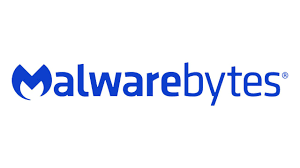In the face of pressing global challenges like climate change and biodiversity loss, traditional scientific research often feels slow and siloed. But a new wave of citizen science is changing the game, harnessing the power of crowds to collect data, solve problems, and accelerate discoveries.
From Passive Observers to Active Participants:
Citizen science empowers individuals with no formal scientific training to:
Collect valuable data: Participants document species observations, monitor environmental changes, or contribute to large-scale data collection projects.
Analyze and collaborate: Online platforms enable collaborative analysis, crowdsourcing expertise to draw insights from collected data.
Advocate and inform policy: Citizen science findings can inform policy decisions and empower communities to advocate for solutions.
Benefits Beyond Data:
Citizen science offers more than just data:
Increased scientific literacy: Participation fosters public understanding of scientific processes and environmental issues.
Empowerment and ownership: Engaging citizens creates a sense of ownership and responsibility for solutions.
Diversity and inclusion: Crowdsourcing knowledge taps into diverse perspectives and local expertise, leading to more inclusive solutions.
Examples in Action:
Citizen science projects tackle diverse challenges:
Monitoring species populations: Volunteers track bird migrations, record insect presence, or document changes in plant life.
Air and water quality monitoring: Individuals collect data on pollution levels, contributing to environmental monitoring efforts.
Mapping and conservation: Crowdsourced data helps map forest cover, document biodiversity hotspots, and inform conservation strategies.
Getting Involved:
Anyone can participate in citizen science! Numerous platforms and projects connect individuals with opportunities to contribute:
SciStarter: Find projects across various disciplines.
Zooniverse: Participate in online projects analyzing images and data.
eBird: Track bird sightings and contribute to global bird conservation.
Challenges and Considerations:
Citizen science also faces challenges:
Data quality and standardization: Ensuring data accuracy and maintaining consistent methods across projects requires careful planning.
Ethical considerations: Data privacy, participant safety, and fair attribution of contributions must be addressed.
Sustainability and long-term engagement: Maintaining project momentum and engaging participants over time is crucial.
Citizen science isn’t just a trend; it’s a revolutionary approach to scientific discovery and problem-solving. By bridging the gap between professional research and public participation, we can collectively tackle complex challenges and build a more sustainable future for all.








Leave a Reply